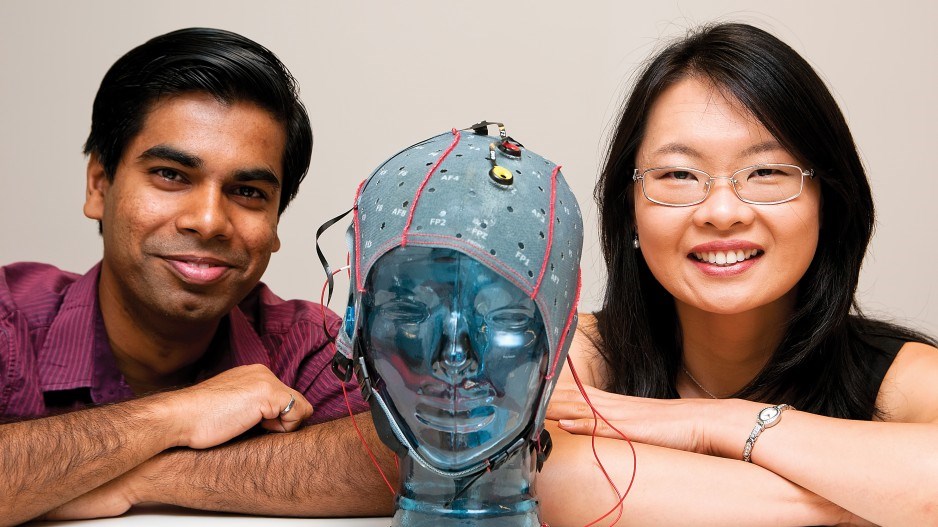Inventor Dean Kamen’s Slingshot is a textbook example of brilliant science beset by mundane dollars-and-cents struggles upon entering the marketplace.
The water purification device, which Kamen has been working on for 15 years, runs on a combustible engine and was born out of the scientist’s goal to eradicate water-borne illnesses. But once Slingshot was deployed in developing countries where clean water is a luxury, he encountered a host of setbacks, finding that the invention was costly to set up, run and maintain in foreign countries, making the business case for it unsound.
Kamen continues to try to make the machine cost effective and affordable so it can be marketed to various governments. Meanwhile, two Simon Fraser University (SFU) PhD students are now hoping to equip the next generation of leaders in a number of technical disciplines with some solid business sense, with the aim of preventing situations similar to Kamen’s.
Biomedical engineering students Sujoy Ghosh Hajra and Careesa Liu started Score (the Surrey Collaborative Outreach and Research Experience program) which seeks to bring the world of business and entrepreneurship closer to that of science, technology, engineering, mathematics, health care and others. Score takes students from high school right through to graduate school and places them in real-world settings that their future innovations might have to face. Score recently won the 2016 Gold Global Best Award in the category of science, technology, engineering and mathematics for North America and will now compete internationally in Oslo, Norway, representing North America in the same category, and as a contender for the Global Best Overall Award.
Hajra said the idea is to get students out of the classroom and into the field to test and tinker with the knowledge they’ve gained from textbooks and lectures.
“A lot of the training that we received traditionally speaking from school and otherwise is very siloed in some respects,” Hajra said. “A lot of the times you don’t necessarily see the impact or the use of what you’re doing. So a key piece is being able to apply that knowledge and really get that perspective.”
Lui said Score recently had a group of students meet and talk with a CEO who had founded a Surrey-based medical technology company. Some of the struggles the entrepreneur shared were enlightening – and a bit frightening.
“To bring in investors, and to bring a prototype to market, those skills are not necessarily something that you can learn in the classroom right away,” Lui said. “So that’s what we’re trying to address with this.”
The Score program is headquartered within Surrey’s Innovation Boulevard, which includes three universities and more than 50 small and medium-sized enterprises and multinational corporations. Score participants get matched up with community and industry partners with the goal of applying technological solutions to real-world problems.
Supervising professor Ryan D’Arcy, SFU’s BC leadership chairman in medical technologies, said another aspect of the program is to make sure homegrown talent stays home.
“I see a bright future where our amazing SFU talent stays in B.C. after graduation for growing high-tech opportunities and jobs,” D’Arcy said.
One of Score’s sponsors is Health Tech Connex, a Surrey-based technology incubator that is also the brainchild of D’Arcy. Chief operating officer Rudi van den Broek said the idea is to “make science real.”
“Not only are they doing science but they’re doing science that is actually going to be used,” van den Broek said. “This is science where we’re making real products that are being taken to the market, which means that most importantly that they will help people.”
In its three years of operation, Score has trained about 60 people – Hajra and Lui call them “hybrid” students – in fields such as project management and business analytics. Hajra said training the next generation of science and technology innovators to be business savvy means getting students thinking about applicability while still in the classroom.
“It’s not necessarily a challenge that somebody has to overcome, it’s more of a mindset shift.”




